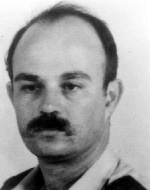Kuperstein, Shahar
Ben Pnina and Eliezer, a brother to Zafrirah. Born on August 26, 1955 in Holon, where he attended the Katznelson Elementary School and the Kugel High School, Shachar was active in the United Movement, first as a trainee and later as a counselor. He was interested in military literature and espionage books, but also in sports, where he played for the Hapoel Holon basketball team and was an avid supporter of the club’s basketball team.In February 1974, Shachar enlisted in the IDF and volunteered for the Paratroopers as a combat medic. After completing his officers’ course, Shachar served as the commander of a course for paramedics at Bahad 10. In August 1977, he enlisted in the IDF Air Force, where he served for many years and successfully completed his studies at the Command and Staff College. According to his commanders, in this capacity Shahar brought to the fore the successful combination of the organization of the medical system in the field of management and logistics, and fieldwork as an operational medical man.In addition, Shahar’s name was associated with guidance in all its significance, Next to the medical personnel in the air force, all of which, in parallel to the operational activity, is a respite In early December 1978 Shachar married his son, Idit, whom he met during service at the Training Center.10 In 1980, their eldest daughter was born, And in 1986 their daughter Liron was born. On the 12th of Tishrei 5757 (October 12, 1996), Shahar died, during his duty, from cardiac arrest. He was laid to rest in the Kiryat Shaul cemetery. He was forty-one years old when he fell. Shahar left behind a wife, two daughters, a father and a sister. In a letter of condolence to the family, Chief of Staff Amnon Lipkin-Shahak wrote: “Shahar was described by his commanders as a talented officer who contributed to others from his experience and set standards of excellence for all those who followed him.” In another letter of condolence to the family, Rabbi Benny: “Shachar excelled in a great heart, from which he distributed chunks to all who wished, and as he gave the heart, so too did the heart take the heart, and in the end it was the heart that betrayed him. In the periodic opinion given to each officer, there is an article in which the commander must reply if he wishes the officer to be served under his command during wartime. I would have gone to war with my eyes closed for every war. In my opinion, there is no greater compliment that a commander can give to his command. “
